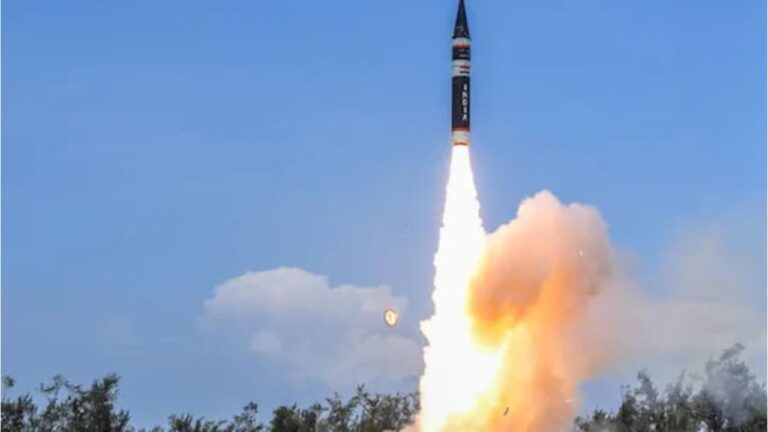
The 21st century has witnessed an unprecedented rise in digital interconnectivity, transforming economies, societies, and governance. However, this digital revolution has also created a new domain of conflict: cyberspace. Cyber warfare is no longer a hypothetical threat; it has become a critical element of national security, capable of disrupting economies, undermining public trust, and affecting military readiness.
Unlike traditional warfare, cyber conflicts are often covert, borderless, and asymmetric, allowing state and non-state actors to inflict significant damage with limited resources. As nations invest in cyber capabilities, the line between cyber defense, espionage, and offensive operations becomes increasingly blurred. For India and other global powers, understanding and adapting to this evolving landscape is essential for safeguarding sovereignty and critical infrastructure.
Rise of Cyber Threats
Cyber threats manifest in multiple forms: ransomware attacks, data breaches, denial-of-service campaigns, and disinformation operations. High-profile incidents, such as ransomware attacks on critical infrastructure in the United States and Europe, or state-sponsored intrusions targeting government networks, highlight the scale and sophistication of modern cyber warfare.
India is particularly vulnerable due to rapid digitalization and the proliferation of internet-connected systems. Critical sectors- including power grids, banking, transportation, and defense- are potential targets. The 2020 cybersecurity breach in several Indian government departments underscored systemic vulnerabilities and the need for proactive strategies to anticipate and mitigate cyber risks.
India’s Policy and Institutional Response
Recognizing the strategic importance of cyberspace, India has taken steps to institutionalize cybersecurity frameworks. The National Cyber Security Policy 2013 laid the foundation, while the establishment of the Indian Computer Emergency Response Team (CERT-In) has provided a centralized mechanism to detect, respond to, and prevent cyber incidents.
More recently, initiatives under the National Critical Information Infrastructure Protection Centre (NCIIPC) focus on securing essential services such as energy, telecommunications, and finance. The government has also prioritized capacity building through skill development programs, encouraging collaboration with academia, private industry, and international partners.
Despite these measures, experts argue that India’s cybersecurity posture must evolve from a reactive approach to a proactive, intelligence-driven strategy. Real-time threat intelligence, continuous vulnerability assessment, and simulated cyber exercises are necessary to anticipate sophisticated attacks before they inflict damage.
Cyber Warfare as a Strategic Tool
Cyber capabilities are increasingly integrated into national defense strategies. Advanced nations treat cyber warfare as a force multiplier, complementing conventional military power. Offensive cyber operations can disable enemy communication networks, disrupt supply chains, and compromise critical decision-making processes.
Equally important is the use of cyberspace in information operations, including psychological warfare, propaganda, and the manipulation of social media to influence public perception. During conflicts, these tactics can erode societal cohesion and undermine confidence in democratic institutions without a single shot being fired.
For India, developing offensive and defensive cyber capabilities is essential to deter potential adversaries, particularly in a region marked by asymmetric threats and technological competition. Cyber readiness enhances resilience, ensuring that critical systems remain operational even under attack.
Challenges and Vulnerabilities
Several challenges complicate India’s cyber security landscape. First, the rapid adoption of emerging technologies- artificial intelligence, Internet of Things (IoT), and cloud computing- creates new vulnerabilities. Second, the shortage of skilled cyber professionals limits the nation’s ability to detect and respond to sophisticated threats. Third, legislative and regulatory frameworks must keep pace with evolving tactics, ensuring accountability and standardized response mechanisms.
International collaboration poses another challenge. Attribution of cyber-attacks is notoriously difficult, complicating the use of diplomatic or military retaliation. Moreover, global norms for cyber conduct remain underdeveloped, creating legal and ethical ambiguities in both defensive and offensive operations.
Opportunities for Strengthening Cybersecurity
India can leverage multiple avenues to strengthen its cybersecurity posture:
- Public-Private Partnerships: Collaborating with private tech companies, startups, and academia to develop innovative solutions and rapidly deploy cybersecurity tools.
- Skill Development: Expanding specialized education programs in cybersecurity, digital forensics, and ethical hacking to build a capable workforce.
- International Cooperation: Engaging with like-minded nations to share intelligence, develop norms for cyber conduct, and conduct joint exercises to prepare for cross-border incidents.
- Technological Innovation: Investing in AI, machine learning, and predictive analytics to detect, analyze, and mitigate cyber threats proactively.
- Comprehensive Policy Framework: Updating legal frameworks to define accountability, promote resilience, and enable coordinated responses across government and private sectors.
Cyber Warfare and the Geopolitical Landscape
Cyber capabilities are now integral to geopolitical competition. Nations such as the United States, China, and Russia actively integrate cyber operations into military doctrines, shaping regional and global power dynamics. India, positioned between a rapidly digitizing economy and a technologically capable adversary, faces unique strategic pressures.
Cyber warfare not only complements traditional military capabilities but also enables strategic deterrence. By demonstrating the ability to respond to cyber-attacks, India can signal resolve to adversaries while maintaining stability in the region. Additionally, investment in cybersecurity enhances economic resilience, safeguarding critical sectors from disruption and maintaining investor confidence.
Conclusion
Cyber warfare represents a transformative challenge to national security, requiring a paradigm shift in defense, governance, and policy. Unlike conventional conflicts, cyber threats are continuous, borderless, and unpredictable, demanding adaptive strategies and constant vigilance. For India, addressing these challenges requires a combination of technological innovation, skilled human capital, proactive policies, and international cooperation.
As cyberspace becomes an increasingly contested domain, nations must recognize that security is no longer confined to physical borders. The ability to defend digital infrastructure, anticipate attacks, and maintain operational continuity will define national resilience in the decades ahead. India’s strategic investments in cybersecurity, coupled with a robust policy framework, position it to navigate this evolving frontier and safeguard its national interests in an increasingly digitalized and interconnected world.






